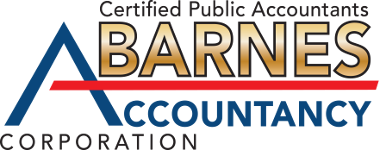It’s getting harder and harder to brace ourselves for the ongoing images of human struggle. They just keep coming. No matter your position on what’s happening, either nationally or abroad, the possibility of disaster touching us — that is out of our control — is very real.
But even a step back from disaster, most of us have a hard time just dealing with small changes — and of course we’re always watching the horizon for potential financial changes that may impact our Southern California readers.
There are a few in the works.
You might have heard about the Section 1031 tax deferral if you invest in real estate on any level. But you may not have heard that your chance to use this tax break could be disappearing…
Southern California Real Estate Investors: The 1031 Tax Deferral May Be Changing
“Most people give up just when they’re about to achieve success.” – Ross Perot
Using Sec. 1031 has long been handy as a tax-deferral tactic (aka “a 1031” or sometimes, “a Starker exchange”). It basically lets real estate investors avoid capital gains taxes when they sell property if they invest the gains into the purchase of more property. (There are many other conditions, which we’ll get to in a sec).
The 1031 tax deferral has been especially good for Orange County landlords who juggle side-gig properties and who want to do their taxes a favor at the same time.
A kind of special swap
If you sell an investment property (residential or commercial), you typically must pay capital gains taxes on the profits. You can defer these taxes — notice that I said “defer” — by doing a special like-kind exchange under Sec. 1031 for another property.
These exchanges are available no matter if you file taxes as an individual or as an LLC, C or S corporation, or other type — pretty much any taxpaying owner of real Southern California property interests.
Granted, the 1031 tax deferral does the biggest favor for investors dealing in an ongoing string of big-money transactions, deals typically in the multi-millions. The ultrarich have leveraged the 1031 to huge financial advantage, sometimes over multiple generations.
But if you own only a few smaller properties and you’re ready to sell, a 1031 can help you put off paying capital gains. That’s a good deal, assuming capital gains rates will be lower in the future.
Certain conditions apply
As with most tax breaks, the devil’s in the details.
For instance, the feds and the good folks at the IRS have defined “real property” under Sec. 1031 and made clear what happens regarding personal property that is incidental to real property received in a like-kind exchange.
The 2017 Tax Cuts and Jobs Act limited like-kind exchange treatment to exchanges of real property. Though people once wondered if such possessions as vehicles or artwork qualified, the final rules now say that “real property” includes land and generally anything permanently built on or attached to land. Certain kinds of intangible property (think leaseholds or easements) can also qualify.
Some more rules:
– You have up to 45 days after you sell the first property to find a few new ones for possible exchange. You must close on the sale of one of those prospects within 180 days of the sale of your first property.
– To be able to defer all the capital gains, the mortgage of the new property must be at least as much as that of the property being sold.
– You have to reinvest all of the net sales proceeds in the purchase of one or more properties. The properties don’t have to be the same type or even in the same state.
– You must keep hands off the money from the sale of the first property. (You generally work with an intermediary to meet this condition; experts recommend finding that professional before selling the first property).
– A 1031 is for investment and business property, not primary residences.
(You get a much better tax break selling your Orange County home if you’ve lived there a while: you can exclude up to $250K for singles or up to $500K for married filing jointly in home-sale profits from taxes. If you own a rental home as an investment, you might want to use it as a primary residence for a period before selling, qualifying you for the above exclusion instead of just 1031 tax deferment.)
Maybe the biggest potential new rule regarding the 1031 tax deferral could come out of Washington: President Biden has proposed ending the exchanges on real estate profits on richer taxpayers.
There’s a lot of debate over whether this move would help or hurt the real estate market as most folks would be under the threshold and still able to use a 1031.
And here’s another big federal proposal: raising the capital gains tax. It could be a lot higher in the future — and remember what we said about only “deferring” taxes? You’ll probably have to pay those capital gains down the road, when they might be a lot higher.
This is just an overview of a 1031, but make no mistake: the tax deferral after a real estate deal takes work, attention and engaging the right professionals. Get one detail wrong and the IRS will give your 1031tax deferral the big heave-ho.
If you think this tax break is for you or you just want to know more, we’re here to help. Schedule a time to chat here:
We’ve got you covered…
Warmly,
David Barnes

